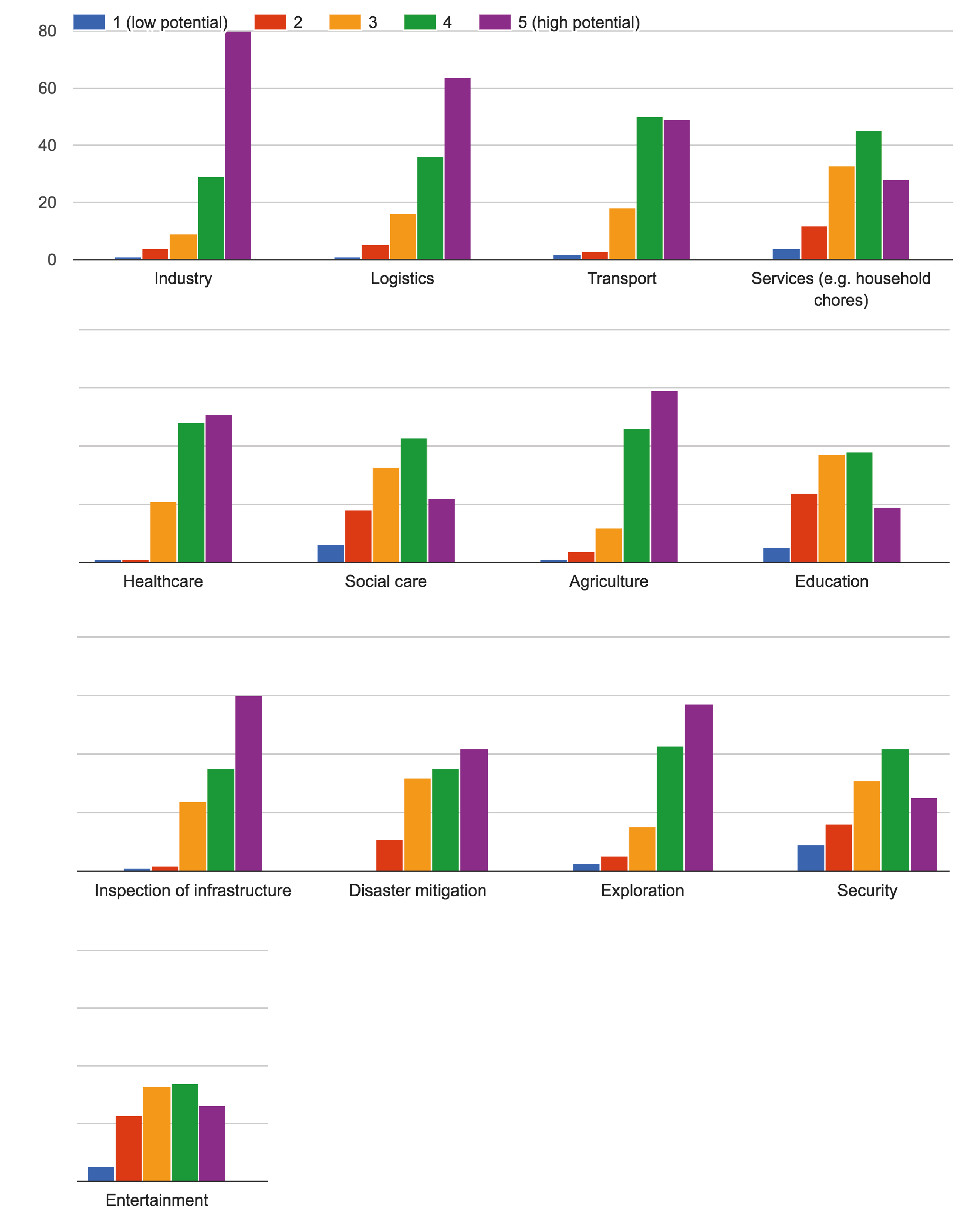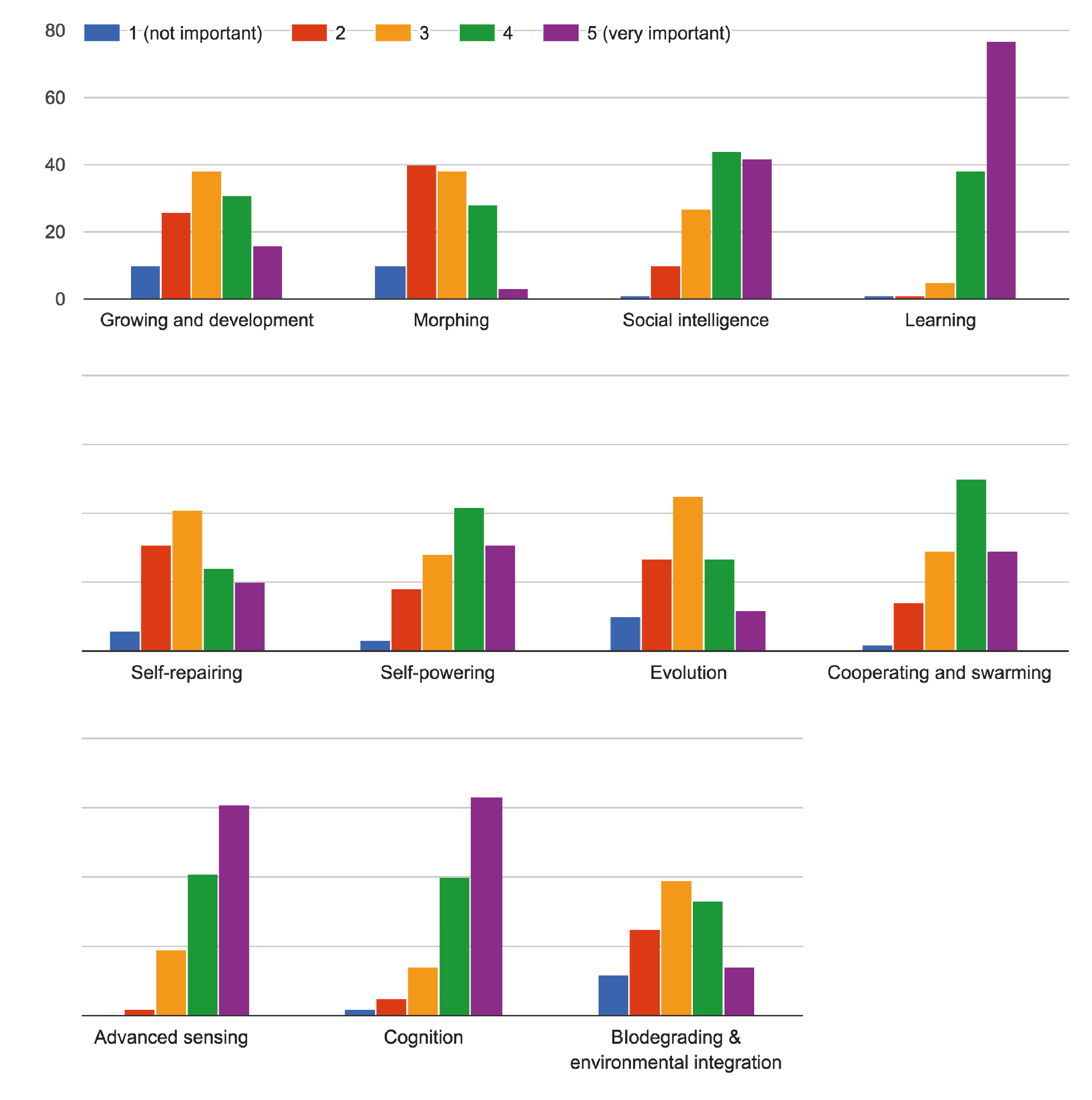
Robohub.org
Robotics Flagship: What the community thinks
In February we asked for input from the robotics community regarding a potential Robotics Flagship, a pan European interdisciplinary effort with 1B EUR in funding, if successful! The goal of the flagship is to drive the development of future robots and AIs that are ethically, socially, economically, energetically, and environmentally responsible and sustainable.
This is the first of many activities we will host to engage the community. You can read more about the Robotics Flagship in a nutshell here.
We received 125 replies (120 from Europe) from roboticists.
In what areas does robotics have the highest potential to benefit society?
Overall, replies show the potential of robotics in all sectors to benefit society, since they all received an average score above 3 out 5 (high potential). Sectors which received the highest average score were industry, logistics, agriculture, inspection of infrastructure, healthcare, exploration, and transport, in that order, all of with an average above 4. Other sectors highlighted by respondents included ecology and environmental protection, tourism, construction, and the use of robots for human understanding, or for scientific investigation of body and brain.

What are the main challenges to achieving this potential?
The main challenge to achieving this potential was seen as technological with an average score of 4.35 out of 5 (very challenging), then societal and regulatory (average scores of 3.69), and finally economic (average score of 3.52). Respondents also highlighted ethical, ideological and political challenges.

What are the key abilities that need to be developed for the robots of tomorrow?
Central to the flagship proposal is the need for new robot abilities that will make robots a reality in our everyday lives. All abilities shown below were seen as central to develop the robots of tomorrow with average scores above 2.9 out of 5 (very important). Abilities which received the highest average score were learning, advanced sensing, cognition, in that order, all with an average above 4. This clearly shows the need to develop robotics and AI hand in hand. Other abilities highlighted by respondents included, reliability, security and safety, reconfigurability, modularity and customisation, advanced actuation, and efficient energy usage.

What resources would you need to make your robots a reality?
Finally, we asked the community what resources they would need to make their robots a reality. Not surprisingly, funding came out on top with an average score of 4.7 out of 5 (very important), next came experimental sites (3.72), networking opportunities (3.75), fabrication facilities (3.58) and standards (3.31).
So what else did the community think would be helpful? Time, software and hardware aggregators, integrators, and maintainers, ethical and legal support, as well as a better understanding of user requirements and social attitudes.

What would you like to see in a robotics flagship?
Finally, we asked what the community would like to see in a robotics flagship. There were too many suggestions to post here, but a recurring theme was high risk projects and big ideas, the need for cross-disciplinary research, and the hope that robots will finally leave the lab to work alongside humans.





